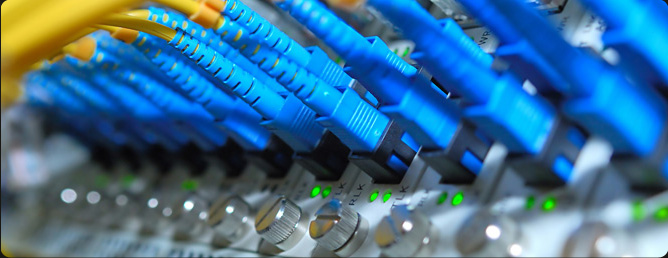If there is something people have zero patience for nowadays, it is slow internet. Especially an internet connection, which demands a lot of money at the end of the month, but delivers unimpressive speeds – resulting in occasional screen freezes, site crashes and buffering that successfully kills the mood. Are you facing a similar problem with your internet service? Then, this article will show you several ways by which you can redress the issue, boost your internet speed and optimize the whole connectivity. Check out these tried-and-tested tips below:
Refresh Your Internet Hardware
What’s the piece of hardware that’s responsible for translating and distributing internet speeds throughout the house? Your router. Like any other technological gadget, a router can get jammed up if not given a break from time to time. You can bring it up to speed by restarting it every week or so. If you have a modem in your house too, then reset that as well. By turning these network devices on and off, you will give them a chance to auto-clean the junk and auto-install any updates sent by the provider. It is an easy fix.

Reposition Your Router
Placement matters and it matters significantly. If you put your internet router in an area that has a lot of physical obstructions, such as walls or bookshelves, chances are that the signals will get interfered and not reach your data-hungry devices optimally. Therefore, the only way out of it is to reposition your router and place it in an area that is open and has full access to each point in your house. This step will release those choked speeds.
Assess Your Monthly Data
Some ISPs impose limitations on your internet quota every month. These restrictions are called ‘data caps’, and if you exceed the defined limit, the provider cuts down your bandwidth and you’re left with frustratingly slow internet. One of the easiest ways to escape the data cap crunch is to upgrade your plan and get unlimited data. If you don’t have such an option in your area, you can always go for providers that offer extremely flexible data caps, like the ones sported by Cox internet services. By understanding and adjusting the data caps to your specific requirements, you can be sure to have a flawless internet experience.
Prefer Wired Connectivity
Wi-Fi is all the rage these days, and why shouldn’t it be? Its wireless nature allows you to move about freely in your house as you stream House of Cards on your smartphone. However, when it comes to the consistency of internet speeds, Wi-Fi is often beaten by Ethernet. Ethernet promises wired connectivity that is not easily shaken by weather interferences or other signal disruptions. The cable successfully supports a strong one-to-one correspondence between the ISP and the synced devices. Though it is a hassle, when you power up your PlayStation or TV via the Ethernet, you will notice an impressive improvement in streaming speeds.
Clear Away the Cache
Perhaps, the problem does not lie in your internet hardware, but your browser. If that is the case, then you can immediately boost network performance by clearing away the cache. What is cache, anyway? Data that site owners use to understand your browsing behavior, and then shoot the right kind of ads your way. Cache collects automatically in the background when you agree to a site’s tracker, and can slow down your browser. So, either clear away this data manually or use a smart tool to jumpstart your internet speeds.
Scan for Malware
There is a chance that a sneaky malware or virus is eating up your bandwidth by moving through your devices and wreaking havoc. You can confirm this possibility by scanning your computer or router for the presence of such destructive elements. Once you’re sure of what’s weighing your internet performance down, then install an advanced antivirus or anti-malware software and eliminate all threats. Some ISPs even include a comprehensive Internet Security Suite in their internet plans. Do take advantage of such offers if they’re valid in your zip.
Change Your Provider
You’ve restarted your router, placed it in an open area, checked for data caps, used an Ethernet, cleared the browser and protected your device, and still the internet doesn’t pan out, then the fault probably lies with your internet service provider. Note down the issues and give your ISP a call. Maintain your stance and convey evidence of slow speeds properly. Ask them to inspect the lines in your area or propose a speed upgrade at the price you like. If the provider is credible and reliable, they will instantly address your problem and optimize your connection. If not, then, you can always switch to a better ISP, who does deliver what’s promised.
So, by implementing the aforementioned pointers, you can optimize your internet connection without much hassle.
Disclosure: We might earn commission from qualifying purchases. The commission help keep the rest of my content free, so thank you!




Jilli Rose says
Thanks for this article. My personal experience to check RJ45 settings. May be sometime it can be loose or something. Better of you can chenge after six months.